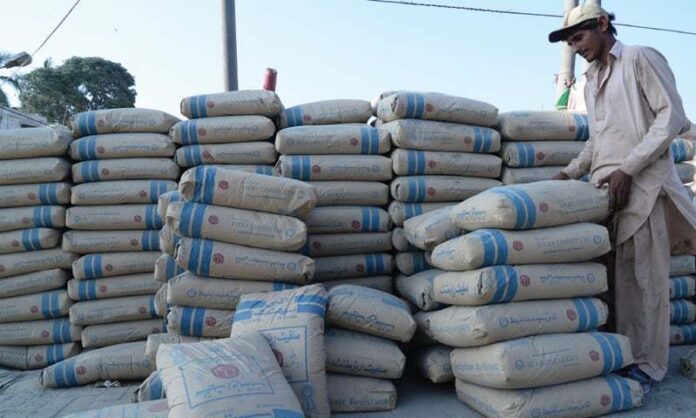LAHORE: Despite a relief package given to the construction industry by Prime Minister Imran Khan, the cement sector is expecting a 25pc decline in demand amid coronavirus outbreak.
Talking to this scribe, All Pakistan Cement Manufacturers Association (APCMA) Chairman Azam Faruque said “it is safe to assume that there will be a significant reduction in demand, but a lot will depend on the lockdown scenario; demand may surge if the markets are opened early”.
He informed that Pakistan’s cement production capacity has touched 63.370 million tonnes per annum, adding that 75.91pc of this capacity is situated in the country’s north while the rest is placed in the south.
During the first eight months (July-Feb) of the current financial year (FY20), domestic demand for cement was recorded at only 27.374 million tonnes, while exports clocked in at 5.939 million tonnes, leaving an unutilised surplus of 8.934 million tonnes.
The APCMA chairman claimed that the cement industry is among the highest contributors to the national exchequer, as its contributions increased to Rs130.463 billion in 2018-19 from Rs39 billion in 2012-13.
He informed that the cement industry is subject to Federal Excise Duty (FED) at Rs2,000 per tonne, while general sales tax is 17pc [of the maximum retail price].
“Cumulatively, these taxes amount to Rs170 per bag. This incidence of high taxation negatively affects domestic consumption,” he added.
Faruque requested the government to reduce [in phases] FED to ‘zero’ so as to encourage cement offtake and support housing and infrastructural development in the country.
“The abolishment of excise duty will not only eliminate the culture of tax evasion but will also enhance cement consumption at reduced prices.”
Presently, he continued, coal and pet coke are being used as fuel/raw material for various manufacturing concerns and that their import duty is at 5pc, which has increased the overall cost of doing business.
He demanded that the customs duty on coal and pet coke should be reduced to “zero” per cent, just how the government has exempted LNG (industrial fuel) from customs duty at import stage.
The cement player stated that clinker and cement are being manufactured locally and that they are abundantly available in Pakistan.
“Currently, the import of clinker and cement is liable to customs duty at 11pc and 20pc respectively and due to cheap energy cost in neighboring countries, low-grade quality cement is being dumped into the Pakistani market,” he said.
Faruque proposed to increase the customs duty on import of both clinker and cement to a uniform rate of 35pc in order to support the local cement industry.
He further proposed to impose an International Trade Price (ITP) regime on the import of Iranian cement.
Meanwhile, Maple Leaf Cement Factory Limited Chief Executive Officer (CEO) Sayeed Tariq Saigol thanked the government for announcing a package to spur construction activity in the country and for allowing the cement industry to restart its production facilities.
“We (cement manufacturers) face the prospect of falling demand amidst the coronavirus crisis and in order to spur consumption, I would urge the government to consider the taxation levels that the industry is subjected to,” he stated while talking to this scribe. “We are among the highest taxed industries in the world and this must change in order to stimulate demand.”




